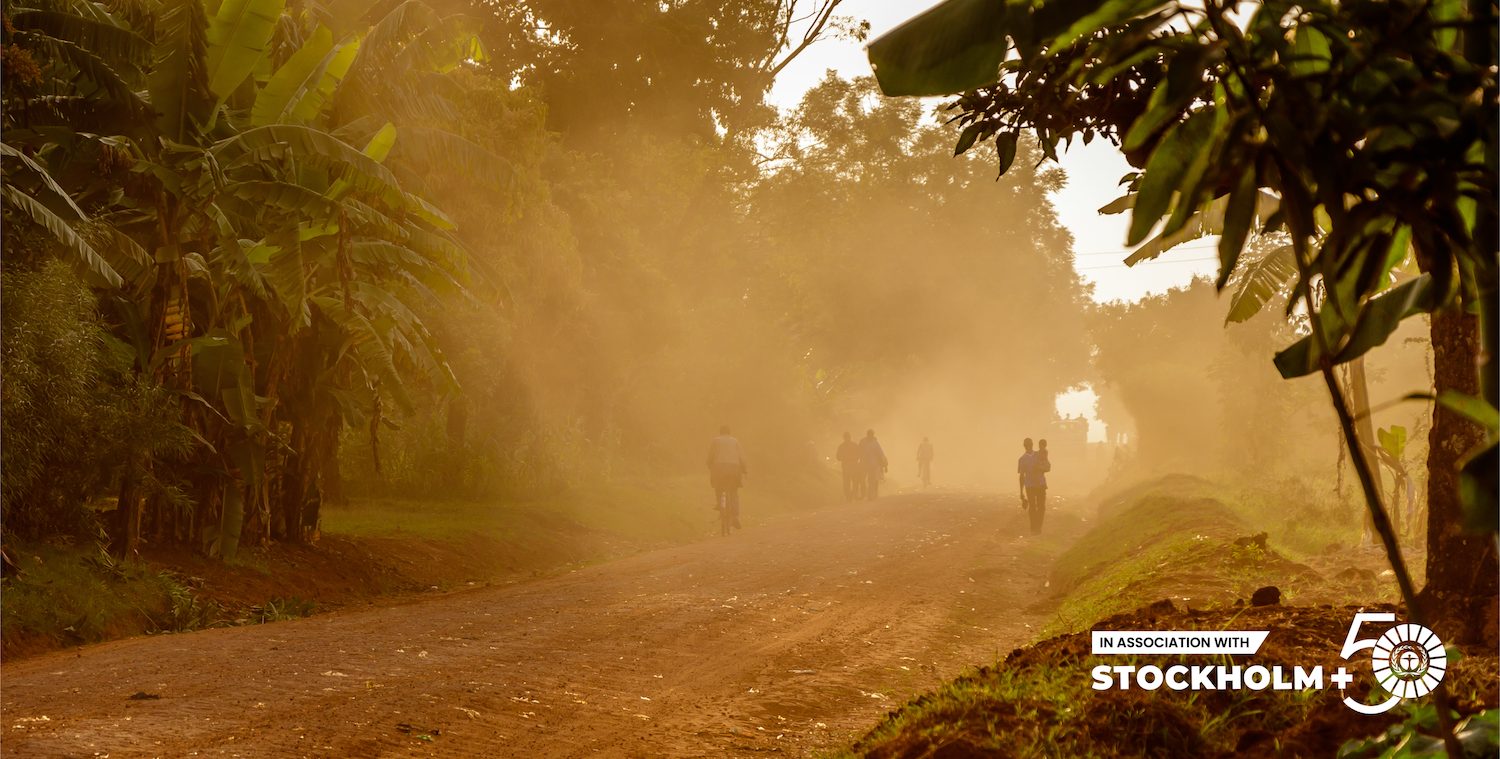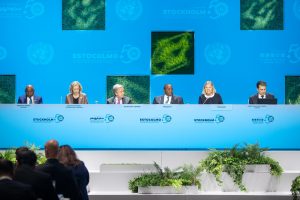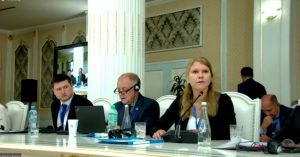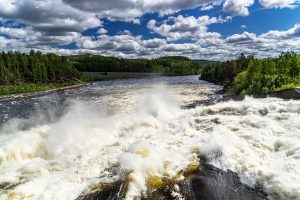Water fundamental to a healthy planet and people
The second webinar focused on how water can help achieve mosaic landscapes, and the importance of people to any attempt to restore landscapes.
Landscapes are crucial to the water cycle, and as the cycle is increasingly disrupted by climate change how we manage landscapes will affect attempts to protect the water cycle. SIWI’s Dr Anna Tengberg started the webinar with an introduction to mosaic landscapes and how their management can reap benefits directly linked to several of the sustainable development goals. She emphasised the importance of engaging with and involving local communities in landscape work both for their knowledge and also to ensure they have a say in decisions made that will affect them.
Next, SIWI’s Lotta Samuelson introduced the Locally Controlled Forest Restoration ( project and explained how many restoration projects are hindered by unrealistic or too hard to measure-goals. Those that are successful often struggle to ensure sustainable results after the project ends and the impact on water resources can sometimes outweigh the positives. LoCoFoRest intends to remedy this trend. One important aspect of goal setting for success is ensuring local communities are part of that process so the goals are both realistic and relevant.
SIWI’s Xanani Baloyi then introduced the Transforming Investments in African Rainfed Agriculture (TIARA) project. Currently, while nearly 95% of Africa’s agricultural land is rainfed, 95% of public agricultural water investment is pumped into irrigated agriculture, making TIARA crucial to ensuring future food security. Xanani dived deeper into the people perspective of Anna and Lotta’s presentations and in her capacity as SIWI’s gender focal point, she highlighted some of the ways in which TIARA not only ensures but is improved by gender equal participation on all levels.
The third and final webinar took a closer look at a human rights based approach, WASH case studies, and the importance of both to safeguarding global health. Stockholm+50 marks fifty years since the first global environmental meeting took place, and fifty years since the notion of a right to a healthy, clean environment first emerged. Almost fifty years later, in 2019, The UN Human Rights Council adopted a resolution on the right to a clean, healthy, and sustainable environment, the first formal recognition of this right at the global level.
Stockholm Declaration, 1972
Man has the fundamental right to freedom, equality and adequate conditions of life, in an environment of a quality that permits a life of dignity and well-being, and he bears a solemn responsibility to protect and improve the environment for present and future generations.
SIWI’s Dr Jenny Grönwall helped to set the scene with a quote from the 1972 Stockholm Declaration, which introduced the notion of responsibilities or obligations in relation to rights. Jenny also explained how the goal, process and intended outcomes of a human rights based approach works.
After Jenny covered what the State’s role and obligations in realizing the human right to water and sanitation are, SIWI’s Dr Ricard Gine introduced the case studies by exploring how the human right to water and sanitation looks off paper, in real life, in several spheres of life beyond the household.
Henning Goransson Sandberg, SIWI, presented the first case study which focused on how schools are working to ensure a safe return for students after pandemic-induced shutdowns. Education was one of the most impacted sectors with most countries closing educational institutions for many if not all ages. Henning explained how several improvements to WASH services provision in school have, when mapped, shown themselves to be focused on Infection Control versus general sanitation needs as well as temporary.
Dr Laura Vargas, SIWI, presented an ongoing study into toilets in public spaces. She explained what the ‘provision’ of toilets entails from accessibility to availability and more. Those who depend on access to toilets in public spaces are often vulnerable groups within society making factors such as pricing and opening hours important to consider when assessing provision of toilets.
One of the three Stockholm+50 leadership dialogues will focus on an inclusive recovery from Covid-19. These cases provided food for thought not only in terms of how governments and duty-bearers can ensure sustainable recovery but also in the interlinkages between Sustainable Development Goals such as Health (SDG5) and Education (SDG3).
The topics covered in these webinars made one thing very clear: water has key role in achieving each and every one of the sustainable development goals. Water encompasses social cultural political and economic values. Stockholm+50 is a pivotal stepping stone in the build up to the landmark UN 2023 Water Conference which will take stock of how far we have come in achieving SDG6. The role of landscapes, youth, human rights, water and sanitation, peace and security are all fundamental to ensuring a healthy planet and prosperity for all. None of this can be achieved without water.











